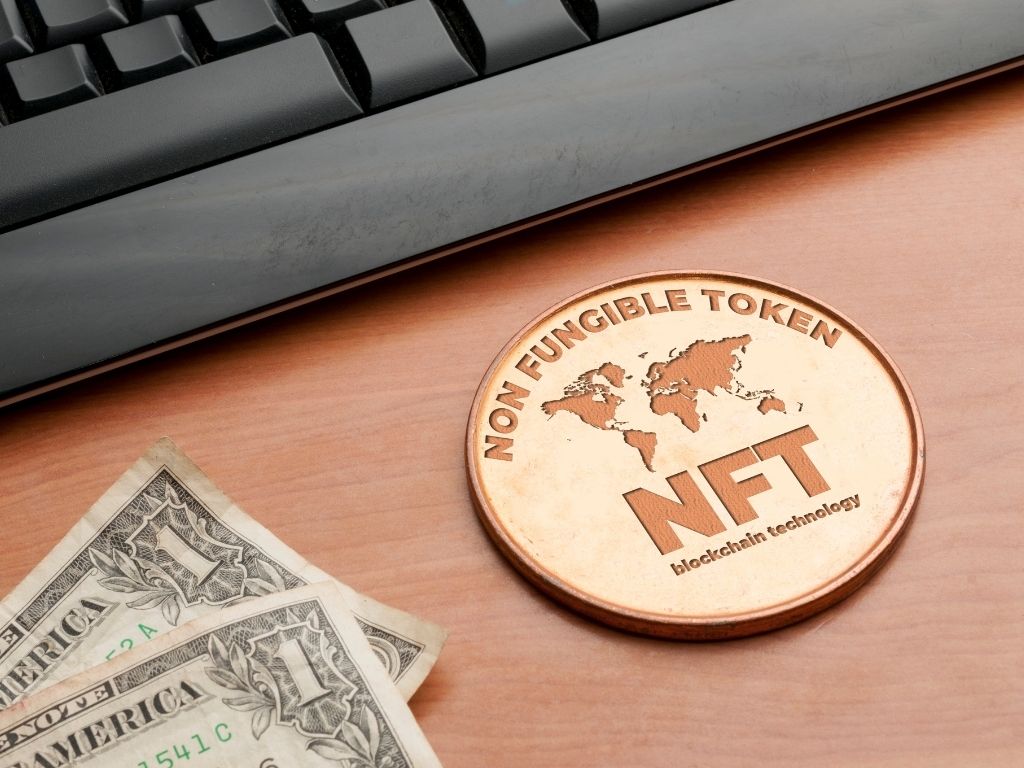NFT Ticketing Systems: The Future of Amazing Secure Event Management In 2024
NFT ticketing systems are changing the way we manage event access. By using blockchain technology, these systems create secure and unique tickets that help solve many problems associated with traditional ticket sales. This article explores how NFT ticketing works and its potential to improve the event experience for both organizers and attendees.
Key Takeaways
- NFTs provide unique and secure tickets, reducing fraud and scalping.
- Event organizers have better control over ticket sales and pricing.
- Attendees enjoy transparent pricing without hidden fees.
- NFT tickets can be collectibles, adding value beyond just entry.
- The future of ticketing looks promising with more technology and wider use.
Understanding NFT Ticketing Systems
What Are NFTs?
NFTs, or Non-Fungible Tokens, are unique digital assets that represent ownership of a specific item or piece of content on a blockchain. Unlike cryptocurrencies, which are interchangeable, each NFT is distinct and cannot be replaced. NFTs are revolutionizing how we think about ownership and authenticity.
How NFTs Are Used in Ticketing
In the ticketing world, NFTs serve as digital tickets for events. When you buy an NFT ticket, you receive a unique token that proves your right to attend. This method helps to eliminate issues like ticket forgery and scalping. Event organizers can also add special perks to these tickets, enhancing the overall experience for attendees.
Benefits of NFT Ticketing
- Security: NFT tickets are stored on a blockchain, making them nearly impossible to counterfeit.
- Transparency: Every transaction involving an NFT ticket is recorded, allowing for easy verification of ownership.
- Engagement: Organizers can offer unique experiences, such as exclusive content or merchandise, linked to the NFT ticket.
NFT ticketing is a new way of handling tickets for events. By using NFTs as tickets, organizers can attach additional perks and advantages.
| Feature | Traditional Tickets | NFT Tickets |
|---|---|---|
| Security | Low | High |
| Transferability | Limited | Easy |
| Ownership Verification | Difficult | Simple |
Challenges with Traditional Ticketing Systems
Scalping and Fraud
One of the biggest issues with traditional ticketing is scalping. Scalpers buy up many tickets and sell them at much higher prices, making it hard for real fans to get tickets at fair prices. This not only frustrates fans but also makes it tough for event organizers to manage ticket sales effectively.
Ticket Forgery and Counterfeiting
Another major problem is ticket forgery. Both paper and digital tickets can be faked, which leads to confusion and disappointment at events. Many people worry if their tickets are real or not, causing a lack of trust in the system.
Limited Functionality and Transparency
Traditional tickets often come with limited functionality. They can be lost or damaged easily, and they usually don’t offer much beyond just getting into the event. Additionally, the pricing can be confusing, with hidden fees that make it hard for customers to know what they are really paying for. This lack of transparency can drive potential attendees away.
The traditional ticketing system is riddled with issues that can ruin the experience for both fans and organizers.
| Challenge | Description |
|---|---|
| Scalping and Fraud | Reselling tickets at inflated prices, making it hard for fans to buy at fair rates. |
| Ticket Forgery and Counterfeiting | Difficulty in verifying ticket authenticity, leading to security issues at events. |
| Limited Functionality | Tickets can be lost or damaged, and resale options are often limited and risky. |
How NFT Ticketing Systems Work
Issuance of NFT Tickets
NFT ticketing starts with the creation of unique digital tickets. Event organizers mint these tickets on a blockchain, which is a secure digital ledger. Each ticket contains important details like the event name, date, and location. This process ensures that every ticket is one-of-a-kind and can be easily tracked.
Smart Contracts and Their Role
Smart contracts are like digital agreements that automatically enforce rules. They help manage the sale and transfer of NFT tickets. For example, they can set limits on resale prices or ensure that tickets are only sold to verified buyers. This gives event organizers more control over how tickets are sold and resold.
Verification and Access Control
When attendees arrive at an event, they can show their NFT tickets from a digital wallet. The ticket is scanned to verify its authenticity. This method is much more reliable than traditional barcodes or QR codes, making it harder for counterfeit tickets to be used. This system enhances security and trust for both organizers and fans.
NFT ticketing is changing how we think about event access, making it safer and more transparent.
Summary of Key Features
- Unique Ownership: Each NFT ticket is distinct and can only be owned by one person.
- Secure Transactions: Blockchain technology ensures that all transactions are recorded and cannot be altered.
- Enhanced Experience: NFT tickets can offer additional perks, like exclusive content or collectibles.
In conclusion, NFT ticketing systems are revolutionizing how events are managed, providing a secure and efficient way to handle ticket sales and access.
Benefits of NFT Ticketing systems for Event Organizers
Reduced Scalping and Fraud
NFT ticketing significantly lowers the chances of scalping and fraud. Each ticket is a unique digital asset on the blockchain, making it nearly impossible to duplicate or forge. This ensures that event organizers can trust the authenticity of every ticket sold. By using NFT technology, organizers can create a safer environment for fans.
Increased Revenue and Control
NFT ticketing opens up new revenue streams for event organizers. They can set rules for resale prices and earn a percentage from future sales. This means that even after the initial sale, organizers can continue to benefit financially. Additionally, they can offer exclusive perks tied to ticket ownership, enhancing the overall experience for fans.
Enhanced Fan Engagement
NFT tickets can provide more than just entry to an event. They can include special digital content, access to meet-and-greet sessions, or even unique collectibles. This creates a deeper connection between fans and organizers, fostering loyalty and excitement for future events.
NFT ticketing is not just about selling tickets; it’s about creating a memorable experience for fans and organizers alike.
Summary of Benefits
| Benefit | Description |
|---|---|
| Fraud Prevention | Unique digital assets reduce the risk of counterfeiting. |
| Revenue Opportunities | Programmable tickets allow for ongoing profit from resales. |
| Enhanced Engagement | Additional perks create a stronger bond with fans. |
Advantages of NFT Ticketing systems for Attendees
Secure and Verifiable Tickets
NFT tickets are stored in digital wallets, making them secure and easy to verify. This means attendees don’t have to worry about losing or damaging physical tickets. They can enjoy peace of mind knowing their tickets are safe and authentic.
Fair and Transparent Pricing
With NFT ticketing, there are no hidden fees. Attendees can see exactly what they are paying for, which builds trust and satisfaction. This transparency is a big step up from traditional NFT ticketing systems, where extra costs can pop up unexpectedly.
Unique Ownership Experience
NFT tickets can be collectible items, featuring unique artwork or special features. This adds a personal touch and makes the ticket itself a valued item. Fans can feel a sense of pride in owning something that represents their experience.
Additional Benefits
NFT tickets can also offer extra perks, such as:
- Access to exclusive content
- Opportunities for meet-and-greet sessions
- Digital collectibles as souvenirs
NFT ticketing is changing the way fans experience events, making it more engaging and secure.
In summary, NFT ticketing provides attendees with a more secure, transparent, and engaging experience, setting a new standard in event management. This innovative approach not only enhances the event experience but also ensures that fans feel valued and connected to the events they love.
Future of NFT Ticketing Systems
As technology continues to evolve, the use of NFT ticketing systems is expected to grow significantly. This innovative approach could reshape how we experience events.
Technological Advancements
- Blockchain Integration: The integration of blockchain technology will enhance security and transparency in ticketing.
- User-Friendly Platforms: As platforms become more user-friendly, more people will adopt NFT ticketing.
- Data Analytics: Advanced data analytics will allow organizers to understand audience preferences better.
Wider Adoption
- Increased Acceptance: More event organizers are likely to embrace NFT ticketing as they recognize its benefits.
- Diverse Events: From concerts to sports, NFT ticketing can be applied across various types of events.
- Global Reach: The global nature of NFTs allows for international ticket sales and access.
Potential Applications
- VIP Experiences: NFT tickets can offer exclusive access to special events or areas.
- Merchandise Bundles: Attendees may receive unique merchandise linked to their NFT tickets.
- Collectible Features: Each NFT ticket can have unique artwork, making them collectible items.
The future of NFT ticketing promises a more secure, transparent, and engaging experience for both event organizers and attendees. As we move forward, the potential for unique ownership experiences will only grow, making events more memorable and enjoyable.
Conclusion
In conclusion, NFT ticketing is reshaping how we attend events, making it safer and more reliable. By using blockchain technology, it tackles many problems that traditional ticketing faces, like fraud and hidden fees. With NFT tickets, fans can enjoy a transparent and secure way to buy and sell tickets. This new system not only protects buyers but also gives event organizers better control over ticket sales. As more people learn about and use NFT ticketing, we can expect a future where attending events is easier and more enjoyable for everyone.
Frequently Asked Questions
What are NFT tickets?
NFT tickets are special digital tickets stored on a blockchain. They are unique and secure, making it hard to fake them.
How do NFT tickets work?
When you buy an NFT ticket, it gets sent to your digital wallet. It proves you have a real ticket for the event.
What are the benefits of using NFT tickets?
NFT tickets help reduce fraud and scalping. They also offer transparent pricing and unique ownership experiences.
Can I resell my NFT ticket?
Yes, you can resell your NFT ticket on special digital marketplaces, and the process is secure.
What happens if I lose my NFT ticket?
Since NFT tickets are stored digitally, you won’t lose them like paper tickets. You can access them from your wallet.
Are NFT tickets better than traditional tickets?
Yes, NFT tickets provide more security, transparency, and unique features compared to traditional tickets.
Stay informed with daily updates from Blockchain Magazine on Google News. Click here to follow us and mark as favorite: [Blockchain Magazine on Google News].
Get Blockchain Insights In Inbox
Stay ahead of the curve with expert analysis and market updates.
latest from tech
Disclaimer: Any post shared by a third-party agency are sponsored and Blockchain Magazine has no views on any such posts. The views and opinions expressed in this post are those of the clients and do not necessarily reflect the official policy or position of Blockchain Magazine. The information provided in this post is for informational purposes only and should not be considered as financial, investment, or professional advice. Blockchain Magazine does not endorse or promote any specific products, services, or companies mentioned in this posts. Readers are encouraged to conduct their own research and consult with a qualified professional before making any financial decisions. The featured image used is just a creative depiction of the title and it does not intend to hurt sentiments of any person or institution. If it hurts anyone sentiments, please do not hesitate to reach out to Blockchain Magazine.

 Bitcoin
Bitcoin  Ethereum
Ethereum  XRP
XRP  Tether
Tether  Solana
Solana  USDC
USDC  Dogecoin
Dogecoin  Cardano
Cardano  Lido Staked Ether
Lido Staked Ether  TRON
TRON  Chainlink
Chainlink  Wrapped Bitcoin
Wrapped Bitcoin  Sui
Sui  Wrapped stETH
Wrapped stETH  Avalanche
Avalanche  Stellar
Stellar  Hedera
Hedera  Toncoin
Toncoin  Shiba Inu
Shiba Inu  LEO Token
LEO Token  Hyperliquid
Hyperliquid  Bitget Token
Bitget Token  Litecoin
Litecoin  WETH
WETH  USDS
USDS  Polkadot
Polkadot  Bitcoin Cash
Bitcoin Cash  Ethena USDe
Ethena USDe  MANTRA
MANTRA  Wrapped eETH
Wrapped eETH  Uniswap
Uniswap  Ondo
Ondo  Pepe
Pepe  Aave
Aave  Monero
Monero  WhiteBIT Coin
WhiteBIT Coin  NEAR Protocol
NEAR Protocol  Mantle
Mantle  Official Trump
Official Trump  Aptos
Aptos  Dai
Dai  Internet Computer
Internet Computer  Ethereum Classic
Ethereum Classic  Bittensor
Bittensor  Cronos
Cronos  OKB
OKB  POL (ex-MATIC)
POL (ex-MATIC)  Gate
Gate 




